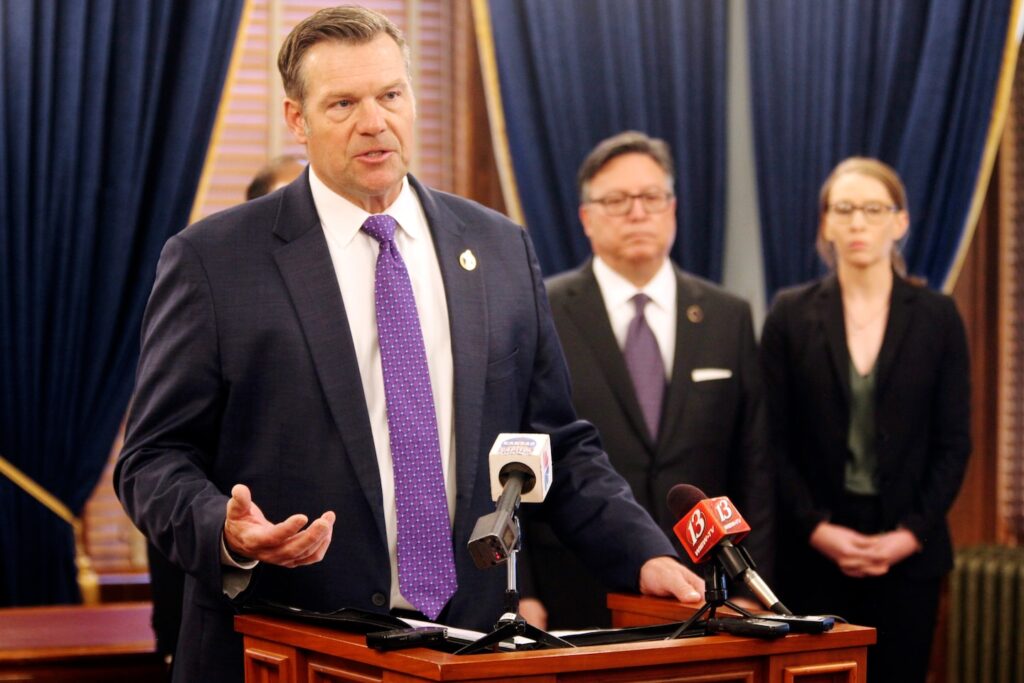The plan, launched in October, offers millions of borrowers lower monthly payments and a faster path to cancellation. More than 150,000 registrants who originally borrowed less than $12,000 and have been making payments for 10 years have already had their balances erased. The Biden administration estimates the Save Plan will cost $156 billion over the next 10 years, but the Congressional Budget Office puts the number closer to $230 billion. This level of forgiveness has angered conservatives.
“The president promoted and implemented a different version of the student loan forgiveness program in a completely brazen manner,” Kobach told reporters at a press conference Thursday.
The Department of Education declined to comment on the lawsuit. But in a statement on Thursday, the government said it was “fighting to fix our broken student loan system and as part of that we are developing the most affordable student loan repayment plan ever.” The Biden-Harris administration will not stop fighting to provide assistance and relief to borrowers across the country, no matter how many times Republican lawmakers try to stop us. ”
Kobach's lawsuit was joined by the attorneys general of Nebraska, Iowa, Texas, Alabama, Alaska, Idaho, Louisiana, Montana, South Carolina, and Utah. They intend to seek a temporary restraining order to block the Save program.
Still, while new lawsuits from states revive arguments used in previous fights against debt forgiveness, the relief plan is supported by different authorities than the forgiveness plan rejected by the high court. Meanwhile, the Biden administration's failed plan used 9/11-era laws to justify itself. New Save provides $430 billion in debt relief during pandemic The plan was created using authority from the Higher Education Act, which created income-based repayment plans in 1993.
Kovach argues that the Higher Education Act does not allow debt relief for anyone other than those who are permanently disabled, have been defrauded by their university, work for the government, or are bankrupt. But the Education Department noted in a statement that this is the fourth time a federal agency has used its 1993 authority to expand income-driven options.
Save ties monthly payments to income and family size and is a modified version of an existing repayment plan known as Revised Pay as You Earn or Repay. All four income-driven plans promise to forgive a borrower's balance after 20 or 25 years of payments.
Like many conservatives, Kobach said widespread debt relief would “force student loan payments on people with exorbitant student debt” who didn't go to college or didn't save for college. They argue that it is clearly unfair to U.S. taxpayers.
Kansas was one of six states, including Missouri and Nebraska, that sued the Biden administration in 2022 to block widespread base debt cancellation. The Supreme Court struck down the plan last year in a 6-3 decision, saying the president lacked the authority to enact sweeping policies without input from Congress.
Missouri Attorney General Andrew Bailey on Thursday praised Kobach's new lawsuit and said he plans to file a related lawsuit.
Thursday's lawsuit was filed the same week the White House hosted a day of action to advance the Save Plan, which has enrolled more than 7.7 million borrowers so far. The administration estimates that the plan could save the typical borrower $1,000 a year in payments by reducing the amount of income used to calculate monthly bills.


